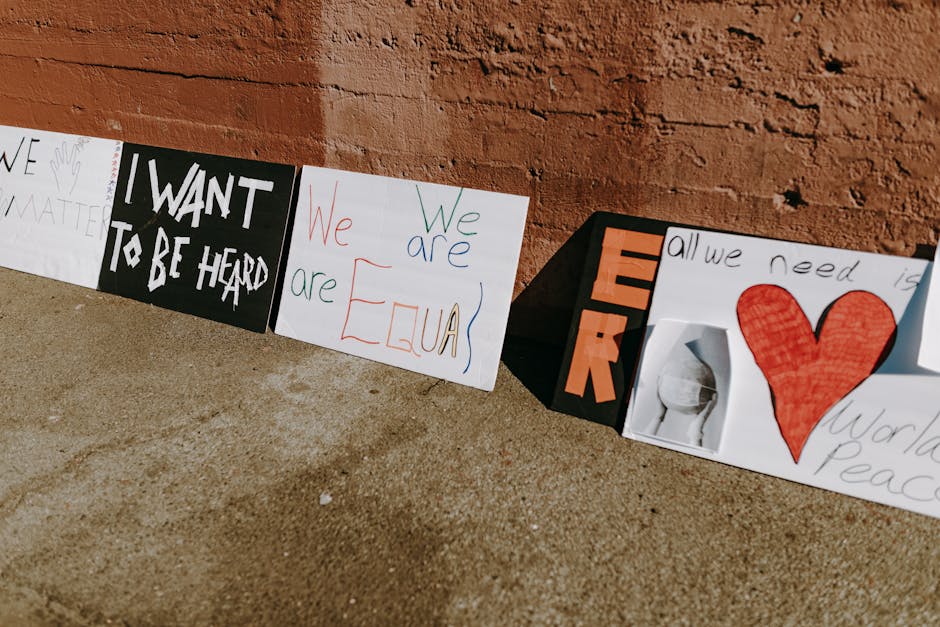The tapestry of political discourse, while striving for inclusivity, often overlooks the voices of particular groups. This absence of representation creates a distorted understanding of societal needs and aspirations, ultimately hindering effective governance. Identifying and amplifying these marginalized voices is crucial for fostering a truly representative and equitable political system. This exploration delves into the diverse groups whose perspectives frequently fall outside the dominant narratives in political spheres worldwide.
Several crucial factors contribute to the marginalization of certain voices in the political landscape. Power imbalances, historical injustices, and societal biases all play significant roles. For instance, socioeconomic disparities often lead to a lack of political engagement and representation among lower-income communities. These communities may face challenges such as limited access to resources, information, and opportunities to participate in political processes. A significant barrier arises from the lack of readily available, accessible, and culturally relevant information about political processes and opportunities, essentially silencing their voices.
Another prominent category of marginalized voices encompasses racial and ethnic minorities. Throughout history, systemic oppression and discrimination have created hurdles for these communities in accessing political power and influence. Historical injustices, coupled with ongoing biases within societal structures, including education, employment, and the justice system, result in diminished political participation rates and limited representation in decision-making bodies. This underrepresentation often results in policies that fail to address the specific needs and concerns of these groups, perpetuating the cycle of marginalization.
Gender disparity is a further crucial aspect within the broader discussion. Women and non-binary individuals often face significant obstacles in entering and navigating the political arena. These barriers can range from traditional societal expectations and prejudices to gender-based violence and harassment. Furthermore, the systemic challenges that women and non-binary individuals face within traditional work environments frequently translate into a lack of access to resources required to pursue political careers and initiatives.
A specific demographic group that faces pervasive marginalization involves people with disabilities. Often, political discourse does not adequately address the unique challenges and needs of individuals with diverse abilities. This can lead to policies that inadvertently exclude or disadvantage these individuals, reinforcing societal biases and lack of understanding of their circumstances.
Beyond these primary categories, several additional groups experience political marginalization, including LGBTQ+ individuals, immigrants, indigenous populations, and religious minorities. Each of these communities faces unique challenges and obstacles that contribute to their underrepresentation in political processes. For instance, immigration policies and procedures often create obstacles for immigrants to become engaged in the political system, while indigenous communities frequently encounter historical grievances and the need to challenge unjust land ownership policies.
The effects of this silencing are multifaceted and far-reaching. A lack of representation from various groups can lead to policies that neglect the needs of a considerable segment of the population. Such a situation frequently results in decreased community wellbeing, social unrest, and economic inequalities. Marginalized voices are crucial for the articulation of diverse needs and perspectives that can offer new approaches to challenges and enhance policy-making processes.
Furthermore, the absence of marginalized voices can lead to a perpetuation of biases and stereotypes. Without engaging these perspectives in the public sphere, the dominant narrative can become narrow, failing to capture the full complexity of society’s challenges and solutions. Inclusive political participation is, therefore, not simply an act of fairness; it is a critical component of effective and responsible governance.
Addressing the issue of marginalized voices necessitates a multifaceted approach. Firstly, fostering greater awareness and understanding of the experiences and perspectives of these groups is essential. This necessitates the development of educational initiatives that challenge existing biases and promote empathy and respect for diversity. Secondly, implementing policies that actively promote political participation and representation is imperative. These policies could include measures to increase access to political resources, information, and opportunities for participation, as well as measures to combat systemic discrimination and oppression.
Another critical step involves actively recruiting and supporting candidates from marginalized communities. Creating opportunities for these candidates to gain experience and build networks within the political system is essential. Additionally, empowering community leaders and activists from marginalized backgrounds to advocate for their needs is essential. Providing them with training, resources, and platforms to speak out and be heard within the political realm is crucial. Promoting the involvement of these communities in the development and implementation of policies will provide valuable input.
The role of media and communication plays a pivotal part in bridging the gap and amplifying these often-silenced voices. Ensuring equitable representation in media platforms, promoting stories that reflect diverse perspectives, and fostering a culture of dialogue are all critical components.
In conclusion, the marginalization of specific voices within political discourse significantly diminishes the effectiveness and fairness of governance. By actively seeking out and amplifying the perspectives of those who have historically been excluded, we can forge a more just and equitable society. A truly inclusive political system values and prioritizes the voices of all, ensuring that policies reflect the diverse needs and aspirations of the entire population. Moving forward, a concerted effort to address the root causes of marginalization and to support the participation of all groups is not merely a matter of political correctness; it is a fundamental requirement for building a more democratic and prosperous future.






